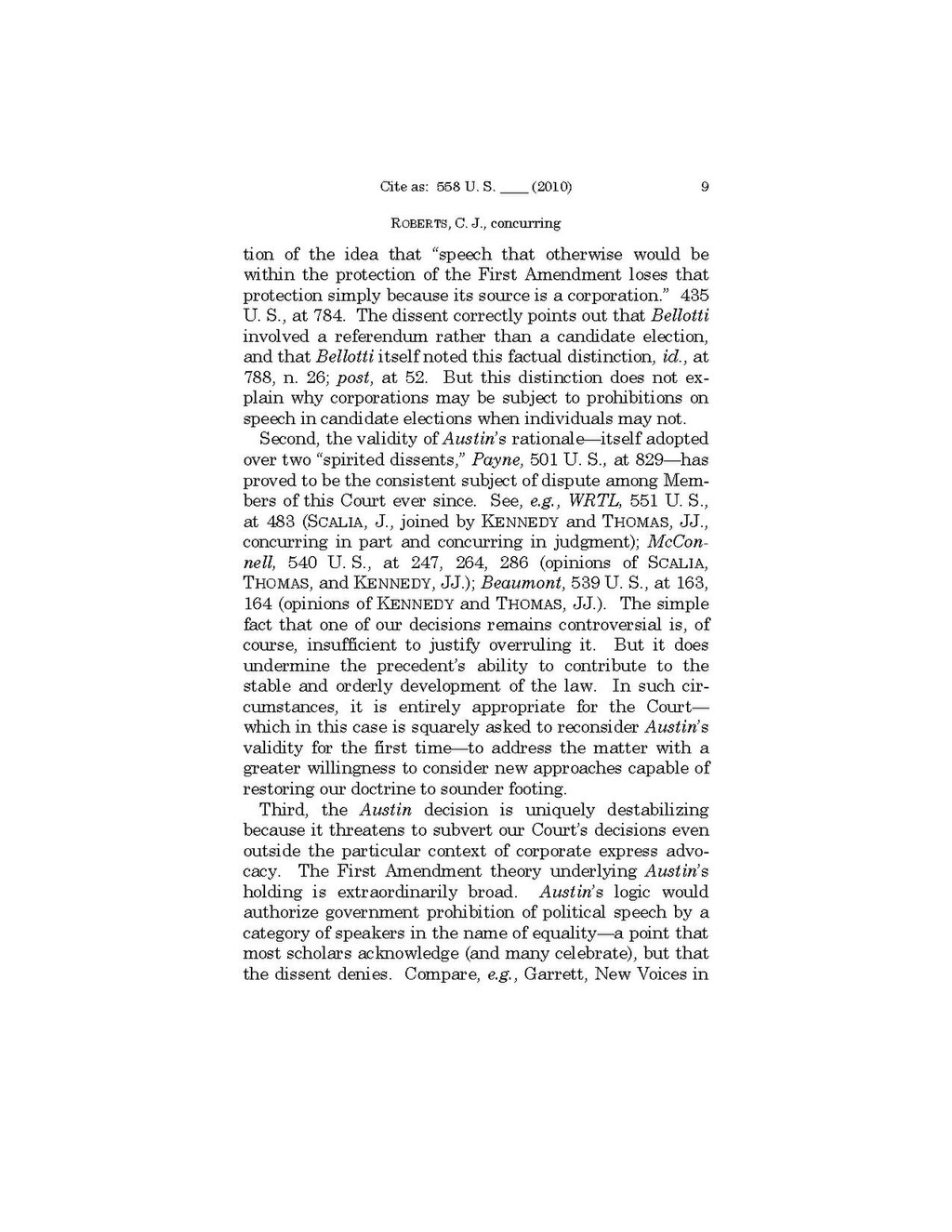{{c|Roberts C. J., concurring
tion of the idea that “speech that otherwise would be within the protection of the First Amendment loses that protection simply because its source is a corporation.” 435 U. S., at 784. The dissent correctly points out that Bellotti involved a referendum rather than a candidate election, and that Bellotti itself noted this factual distinction, id., at 788, n. 26; post, at 52. But this distinction does not explain why corporations may be subject to prohibitions on speech in candidate elections when individuals may not.
Second, the validity of Austin’s rationale—itself adopted over two “spirited dissents,” Payne, 501 U. S., at 829—has proved to be the consistent subject of dispute among Members of this Court ever since. See, e.g., WRTL, 551 U. S., at 483 (SCALIA, J., joined by Kennedy and Thomas, JJ., concurring in part and concurring in judgment); McConnell, 540 U. S., at 247, 264, 286 (opinions of Scalia, Thomas, andKennedy, JJ.); Beaumont, 539 U. S., at 163, 164 (opinions of Kennedy and Thomas, JJ.).
Third, the Austin decision is uniquely destabilizing because it threatens to subvert our Court’s decisions even outside the particular context of corporate express advocacy. The First Amendment theory underlying Austin’s holding is extraordinarily broad. Austin’s logic would authorize government prohibition of political speech by a category of speakers in the name of equality—a point that most scholars acknowledge (and many celebrate), but that the dissent denies. Compare, e.g., Garrett, New Voices in
